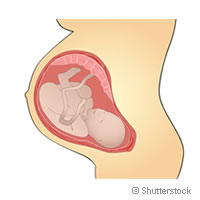Scientists find link between natural killer cells and pregnancy
Scientists in the UK have found a link between natural killer (NK) cells and pregnancy complications. A research team from the Babraham Institute and the Centre for Trophoblast Research at the University of Cambridge in the UK found that pregnancy-related NK cells can moderate the biochemical interactions between a mother's tissues and her developing foetus. Uterine NK cells have specific receptors that facilitate interaction with other molecules, guaranteeing the normal development of the placenta and reproductive success. The results were recently published in the Journal of Immunology. Dr Alan Beer, a pioneer in the field of reproductive medicine, had stated that immune system problems account for up to 80% of the infertility cases in the female population. New research shows that NK cells play a critical role in pregnancy. NK cells are a subtype of lymphocytes - white blood cells found in the vertebrate immune system. These cells protect people from viruses, tumours and other illnesses. They attack infectious and malignant cells once they receive signals from other immune cell components. The NK cells' cytoplasm cells contain several toxic proteins. Receptors detect other immune molecules, in particular those that belong to the 'major histocompatibility complex' (MHC). NK cells then kick-start into action by differentiating between which cell is good and which is bad, and attacking cells that have either lost self-MHC molecules or that express a different set of MHC molecules, the researchers said. The uterus is the site of a specialised set of NK cells that build up during each menstrual cycle. Their numbers quickly increase at the maternal-foetal boundary with the implantation of a fertilised embryo. Until now, scientists were unable to shed light on the mystery of the role of the NK cells. Under normal circumstances, NK cells act to safeguard the person's health but NK cells found in the uterus act in a different way. The researchers believe these cells produce cytokines, proteins that regulate the immune systems. In this case, the maternal arteries supplying the foetus with blood, oxygen and nutrients are modified, according to them. The team explained that the tissue changes must be arranged in the context of the genetic diversity between the maternal immune cells and the paternal genes expressed on the developing placenta. The potential for problematic pregnancies - which generally result in recurrent miscarriages - is intensified when hostile interactions between maternal uterine NK cells and paternal MHC molecules emerge. The interaction between uterine NK cells and MHC only came to light recently. But the researchers noted that there still isn't substantial information as to how maternal immune cells recognise paternal molecules in the developing placenta, effectively hindering an attack. The research team showed that the differences between uterine NK cells and blood NK cells are found in adhesion, activation and MHC recognition capacities. 'Not enough is known about these unique cells and their important role in pregnancy,' explained Babraham Institute's Hakim Yadi, PhD student and lead author of the report. 'This unprecedented and in-depth analysis of uterine killer cells is the necessary groundwork upon which we can build new knowledge. This will aid us in determining the factors that regulate reproductive success.'
Countries
United Kingdom



